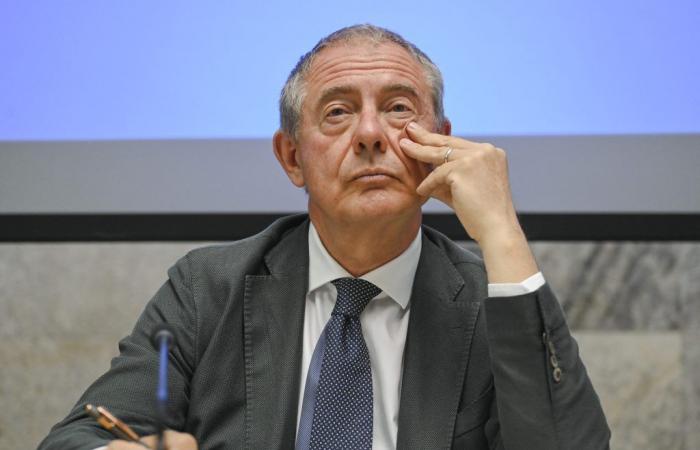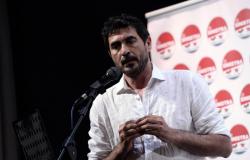Share on TwitterShare on FacebookShare on LinkedInShare via WhatsappShare via Email
The Meloni government, with minister Adolfo Urso, takes the field in defense of the workers of the Italian Stock Exchange who have called a strike against the management of Euronext and has also called a meeting with the leaders of the group accused by the unions of “emptying the Italian structures ”.
Here are all the details.
UNION TENSIONS IN EURONEXT
For the first time in history, the unions have proclaimed a strike of the workers of Borsa Italiana – the Milan-based company that manages and supervises the correct functioning of the Italian financial market -, which will be held next Thursday 27 June. The demonstration is due to the “constant, systematic and overall disinvestment from Italy of the Euronext group” – based in Paris and Amsterdam and of which Borsa Italiana is part – and to the “emptying of Italian structures from within”.
THE REASONS FOR THE STRIKE ON THE ITALIAN STOCK EXCHANGE
The trade union organizations FABI, FIRST CISL and FISAC CGIL have expressed “concern about the stability of employment on the national territory” due to the transfer “of entire areas of activity outside Italy”. Euronext is also accused of “refusing to provide guarantees” and of not having paid employees the salary increases provided for by the collective agreement: a choice deemed “incomprehensible” given “the group’s record results”.
Euronext, for its part, confirmed the “constructive collaboration with the trade union representatives”.
WILL THE GOVERNANCE OF BORSA ITALIANA NO LONGER BE ITALIAN?
In the press release announcing the strike, the unions say they fear a loss of the relevance and autonomy of Borsa Italiana compared to the Franco-Dutch parent company: “we notice a shift in top roles to other geographical areas of the Euronext group”, declare the three organizations , who also speak of risks for “the stability of the overall competitiveness of the country system” considering “the fundamental role of the Italian Stock Exchange as a driving force for the growth of the real economy”.
THE TABLE WITH THE UNIONS AT MIMIT
The Ministry of Business has summoned the representatives of the workers’ unions of the Italian Stock Exchange for Wednesday 3 July to discuss issues related to the strike. The following week the ministry will also convene representatives of the Italian Stock Exchange.
WHO CONTROLS THE ITALIAN STOCK EXCHANGE
Since October 2020, following a 4.3 billion euro agreement, control of Borsa Italiana has passed from the London Stock Exchange to the French-Dutch Euronext. Euronext’s shareholders include Cassa Depositi e Prestiti (through CDP Equity) and Intesa Sanpaolo, as well as Caisse des dépôts et consignations, the French equivalent of CDP.
At the time, Guido Crosetto – currently Minister of Defense – wrote in X that “someone should explain why LSE [London Stock Exchange, ndr] accepts a lower price of approximately 400 ml compared to the other proposals”, referring to the offers of the German group Deutsche Börse and the Swiss group Swiss Exchange.
THE CRITICISM OF COPASIR
Even the Parliamentary Committee for the Security of the Republic (Copasir), then chaired by Raffaele Volpi (Lega), had raised doubts about the sale of Borsa Italiana to Euronext.
In the report on the protection of national strategic assets in the banking and insurance sectors of November 2020, Copasir underlined “the need to ensure systemic action aimed at guaranteeing the return of the financial infrastructure of the Italian stock market to a national sphere of control ”.
In fact, while appreciating some aspects of the operation, the committee underlined how “the reasons underlying the choice towards the Euronext solution (even with the participation of Cdp and the presence of Intesa Sanpaolo) are not evident, compared to the other offers presented, apparently potentially competitive from an economic point of view”. Swiss Exchange would have been excluded as Switzerland is not part of the European Union, although Spain had already sold its stock exchange to the company; as for Deutsche Börse, “the preference for the French group over the German one […] would in turn deserve a series of motivations and arguments which are not currently available”.
In the report, Copasir expressed concern about the “growing and planned presence of economic and financial operators of French origin in our economic, banking, insurance and financial fabric”, which could “determine strategies, actions and attitudes not always in line with national economic needs”.
THE THOUGHT OF ADOLFO URSO
In the report on Italian national and economic security of February 2022, Copasir – passed under the leadership of Adolfo Urso (Brothers of Italy), now Minister of Enterprise – continued to invite attention to the economic penetration of France, also mentioning the case of Italian stock exchange.
In September 2022 Urso declared a Milan Finance that, in relation to the sale of the Italian Stock Exchange, “the other proposals which objectively appeared more suited to our needs should also be evaluated. In the Copasir report approved unanimously we had raised the alarm, highlighting how the minister at the time, Gualtieri, had not even given explanations to the committee because he had wanted to deal only with the French, discarding the other more appropriate proposals without reasons. We always evaluate only on the basis of national interest, others evidently do not”.
Even earlier, in March 2021, in a motion presented to the Senate together with other exponents of the Brothers of Italy such as Luca Ciriani and Giovanbattista Fazzolari (now a powerful undersecretary to the Presidency of the Council), Urso argued that “Euronext […] has implemented a policy of weakening the offices of the acquired companies, progressively reducing their autonomy and consequently also, significantly, the staff employed there”.
“It would be desirable”, we read again in the act dated 2 March 2021, “that the high stock of private savings in our country was directed to the service of the real economy so as to avoid, as underlined by the president of Consob, Paolo Savona , ‘that Italian ants work to support many foreign cicadas, or fall prey to speculative forces, in a global context that is increasingly escaping the controls of public supervisory authorities’”.
In the motion, Urso and the other parliamentarians of the party chaired by Giorgia Meloni asked the government to “create all the necessary safeguards to intervene promptly in the event that Italy does not obtain adequate recognition of its contribution to the Euronext group or national interests are threatened from further extraordinary operations”.
GIORGIA MELONI’S THOUGHT
In the autobiography I am Giorgia. My roots, my ideas, Giorgia Meloni dedicates a page to French penetration into the Italian economy, mentioning the Italian Stock Exchange. In fact, the Prime Minister writes that
It will not have escaped the notice of those who carefully follow the economic dynamics within the EU that for years the French presence in the Italian productive fabric has strengthened, occupying leading roles also in strategic companies and infrastructures, recently even assuming the control of the Italian stock exchange. On these dossiers, our senator Adolfo Urso is leading a battle as an authentic patriot, even within COPASIR, with determination and courage.
There are some assets that national states hold onto tightly, because they are considered vital to the very existence of the nation. In Italy in recent decades there has been – let’s say – a lack of attention towards this great issue, and when there was attention, the interests that were protected were not Italian. One day, when I have the strength to do so, I will propose the establishment of a commission of inquiry on this issue, to find out who was too distracted and who was too compliant, and I do not exclude that, at a certain point, we could find ourselves faced with the biggest scandal in the history of Italy.
EURONEXT SHAREHOLDERS AND MANAGEMENT
The main shareholders of Euronext are CDP Equity (7.82 percent), Caisse des dépôts et consignations (7.82 percent), Société Fédérale de Participations et d’Investissement (5.17 percent), Intesa Sanpaolo (1. 50 percent) and the Dutch bank ABN AMRO (0.50 percent).
The CEO is the Frenchman Stéphane Boujnah.






